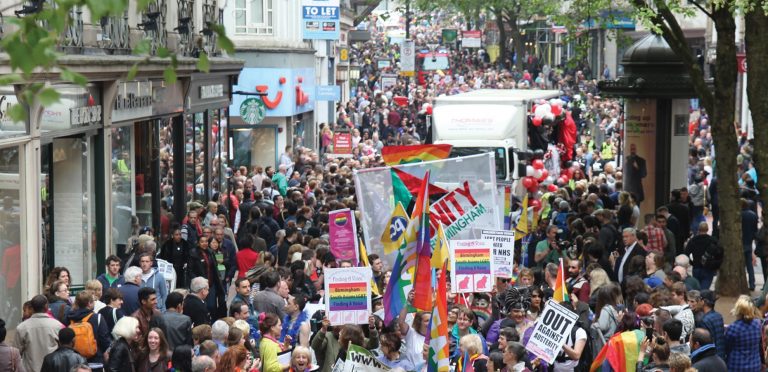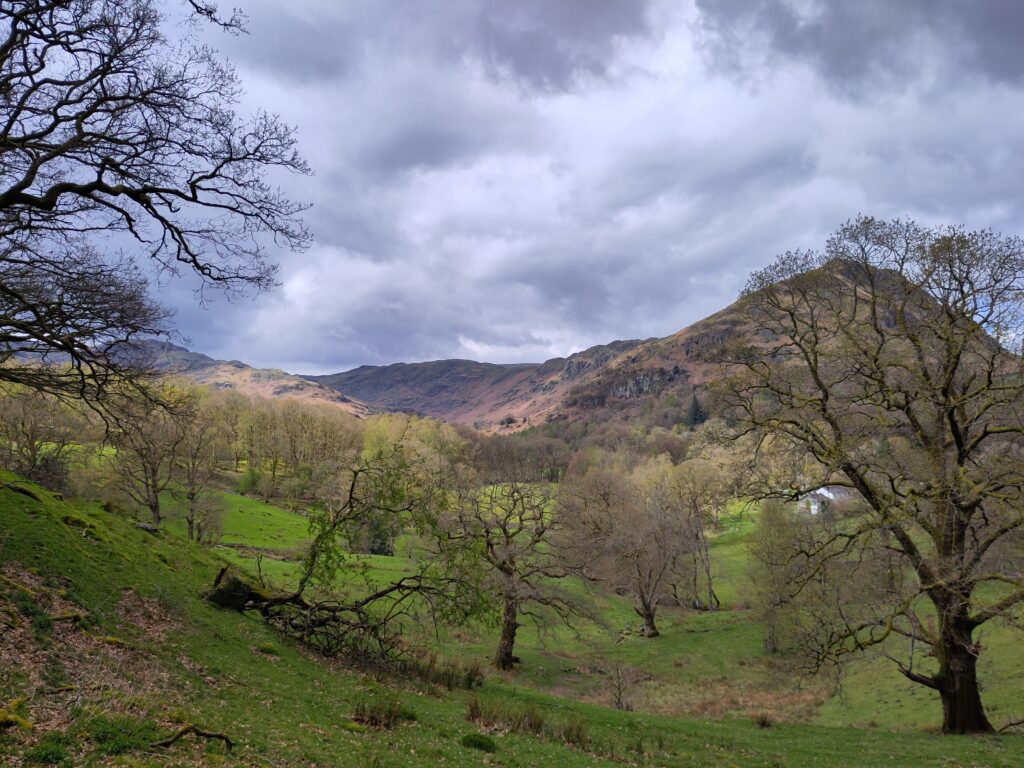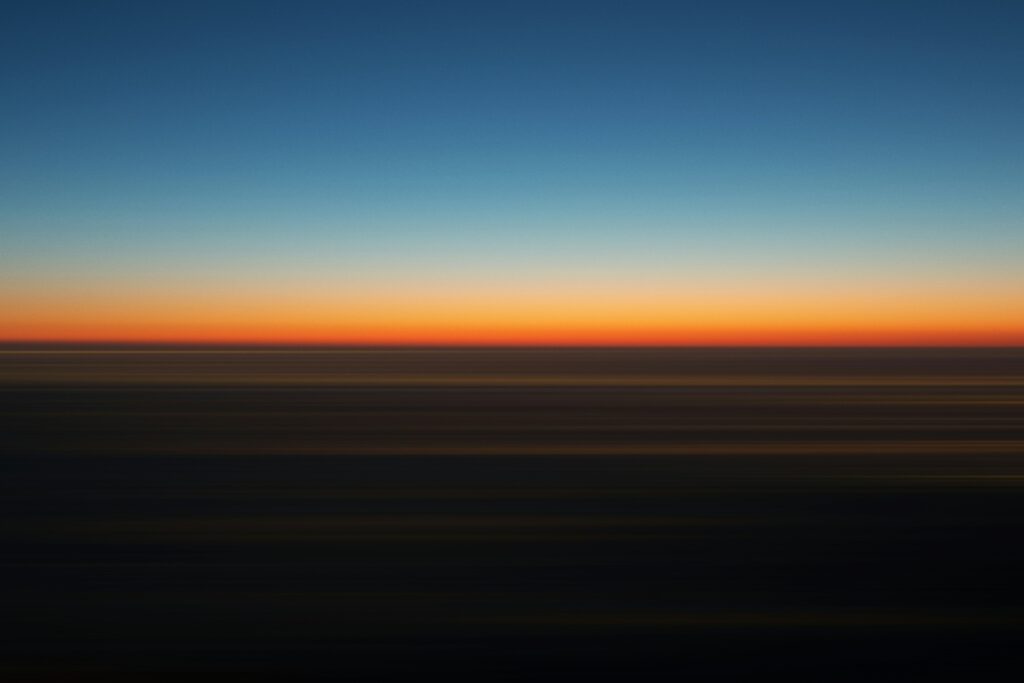In the midst of lockdown, pride season looks very different to normal for Mark Russ, who reflects on its meaning for him as a white male gay Quaker.

June is over, and in the US that means Pride Month has finished. The idea of Pride ‘Month’ doesn’t make a lot of sense in the UK. Birmingham Pride normally happens in May and Pride festivals take place all the way through to Preston Pride at the end of September. So we have more of a Pride ‘Season’, which I like to think begins with Eurovision (otherwise known as ‘gay Christmas’) all the way through to when the clocks change. I know Quakers don’t have ‘times and seasons’, but if it’s too cold to wear a vest top then I’m not parading anywhere.
The global pandemic has seen Pride festivals all over the UK cancelled or moved online. I’m going to share what that has meant for me as a white gay man. Pride is for all LGBT+ people, and means different things to different people. There’s no one ‘Pride’ experience and not every LGBT+ person enjoys Pride. This is my personal perspective on what I’ve lost and gained in this very different Pride Season.
In many ways, I’ve had an easy lockdown. I’ve kept my job. I’m able to work from home in a house that has the space. I have a garden. I have a supportive partner who’s been doing all the shopping. I am extremely grateful for all these things. At the same time, I’ve experienced depths of depression I’ve not know before. The gym that did wonders for my mental health is shut. I’ve not been able to hug friends or family for months. I’m an extrovert, so I’m cut off from my main source of energy – being among people. I’m tired all the time. This is a situation where comparing my suffering with other people isn’t very helpful. Lockdown has been both very easy, and very hard.
It may sound frivolous, but losing Birmingham Pride was especially difficult. To understand why this was such a big deal, I need to explain how much my gay community means to me. A couple of years ago I joined an LGBT+ running club because I needed a cheap way to get fit. I’ve since learned to enjoy running, but even better, I now have a big group of gay men in my life. Although I have had queer people in my life for a long time, this was a new experience. Being in a completely gay space, surrounded by gay (mainly beardy) men like me, was totally new. I didn’t know how much I needed it until I found it. I could feel it healing me of the ways homophobia had shaped my life. Since then, gay friends and gay spaces have been an incredibly important part of my life.
There’s a vital intimacy to gay male spaces. These are spaces where men express friendship in a way very different from the straight spaces I’m familiar with. Under lockdown, those spaces, including Pride, have disappeared. I really miss my friends. I miss their bear hugs and beardy kisses. What I wouldn’t give to be in a gay club packed with sweaty bodies! Under lockdown, I have felt angry hearing other Quakers speak of the lockdown as some sort of spiritual retreat, or opportunity for greater connection with God. I experience God through bodies. Dancing with my friends is an important spiritual practice for me, and I can’t do that anymore.
Despite everything that I’ve lost, the pandemic has also revealed important truths for the LGBT+ community. The disproportionate effect of the virus on people of colour, the murder of George Floyd, and the growing call of Black Lives Matter are matters that concern the LGBT+ community too. Gay white men like myself can often not look beyond their own experience, ignoring the experience of others who make up the Pride rainbow, and particularly LGBT+ people of colour. We can forget that one of the key figures in the Pride movement, Marsha P. Johnson, was black and trans. Pride is a party, and should never stop being a joyous celebration, but must remain a defiant party in the face of oppression. No single LGBT+ person is free until all LGBT+ people are free. If Pride loses its focus on justice for all LGBT+ people then it’s nothing to be proud of. So when Pride festivals resume, when I get to hug my friends again, I hope it will be as part of an LGBT+ community with a sharper sense of solidarity, a community that is, in the words of Birmingham Pride’s 2020 theme, ‘Stronger Together’.
Being a Quaker Community of Witness and Welcome.
Mark Russ is Woodbrooke’s Nurturing Friends and Meetings Tutor and coordinates the Equipping for Ministry programme. Mark began worshipping with Quakers in his late teens, and spent his twenties teaching music to all ages in London. He recently gained a MA in Systematic and Philosophical Theology with Distinction from the University of Nottingham. He is interested in how the Bible can be a source of Spirit-led learning. On his personal blog jollyquaker.com he writes useful theology from a Christian and Quaker perspective.



